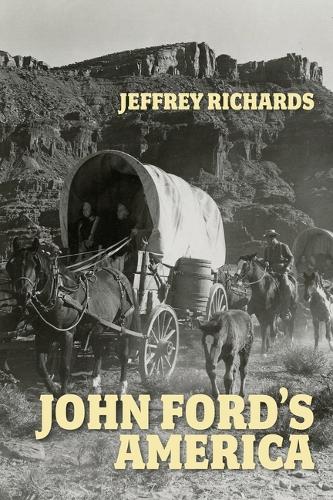
John Ford's America
(Paperback)
Available Formats
Publishing Details
John Ford's America
By (Author) Jeffrey Richards
Manchester University Press
Manchester University Press
29th April 2026
United Kingdom
Classifications
General
Non Fiction
Film, television, radio and performing arts: companion works
791.430233092
Physical Properties
Paperback
350
Width 156mm, Height 234mm
Description
By the time of his death in 1973, John Ford was probably the most celebrated director of Hollywood's golden age.
The winner of four best director Oscars, he was the first filmmaker to be awarded his country's highest civilian honour, the Medal of Freedom, and the man chosen by the American Film Institute to receive its first life achievement award.
In his work, Ford returned regularly to the same themes, employed the same actors and had a visual style that was personal and distinctive. This volume explores his preoccupations throughout his long, garlanded career, showing how he attempted to come to terms with American history, with how America kept changing its relationship with history and with how many of the myths of the 'West' were just that myths.
Reviews
' The book explores notions of family, community, and nation and the struggle of social outcasts to find a place within those worlds... Fords problematic representation of Black people and Native Americans is weighed against his more sympathetic treatments of these communities in films made later in his career, such as Sergeant Rutledge (1960) and Cheyenne Autumn (1964), not to mention films like The Searchers (1956) that foregrounded and exposed white racism.'
Choice
Reprinted with permission from Choice Reviews. All rights reserved. Copyright by the American Library Association
Author Bio
Jeffrey Richards is Emeritus Professor of Cultural History at Lancaster University
